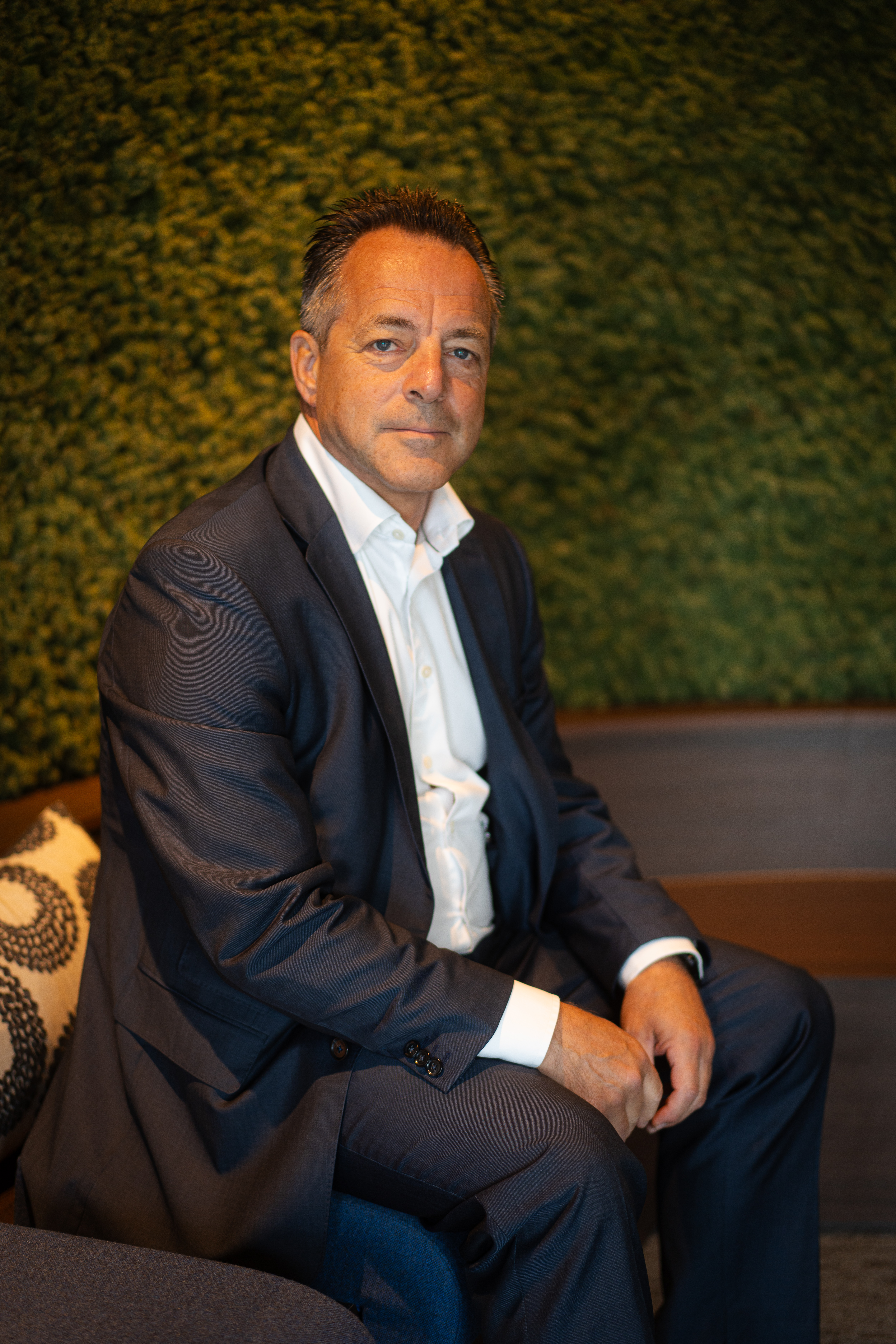Pat: “Geopolitics has always played a role in shaping the economic climate, but in today's interconnected world, its impact on business strategy is more significant than ever. It’s very complex, and there’s no one way or easy solution. Clients need to be nimble as they are now required to respond faster to geopolitics impacting their business. For example, trade issues, inflation, cost of borrowing, interest rates and energy are all shifting and creating impacts on their business.”
Peter: “In recent years, various crises have succeeded each other in rapid succession. Consider, for example, the financial crisis, migration crisis, climatic challenges and the COVID-19 pandemic, to name a few. In Belgium and other countries, high inflation rates are having a major impact on consumers and businesses, while financing costs for regular investment loans are also rising rapidly.”
Pat: “Many organisations don’t have the resources to acquire knowledge about everything, and clients are leaning on BDO as the experts. We help our clients navigate geopolitics – and while it may not be possible to predict every geopolitical event, organisations can certainly prepare for and mitigate their impact through careful planning, risk management, and a proactive approach to understanding and responding to geopolitical influences. In addition, businesses must stay vigilant concerning changes in regulations and compliance requirements, especially in international markets.”
Peter: “As a business leader, keeping the motto 'never waste a good crisis' in mind, you have numerous opportunities to make your organisation more robust for the future. Anticipating possible bottlenecks – instead of practicing crisis management – is the message. In collaboration with Living Tomorrow, BDO Belgium has developed specific techniques for building up a 'memory of the future', whereby we provide entrepreneurs with a compass, so to speak, to detect early indicators and alarm signals in a timely manner.”
Pat: “The impact of European regulation on the economy is multifaceted. It can present challenges and costs for businesses, but it also offers opportunities for those who can navigate the regulatory landscape effectively. European regulations can serve as a catalyst for global change by influencing standards and practices in various industries – which makes them a game-changer in the broader context of global governance and sustainability. How organisations perceive and respond to these regulations determines whether they are a threat, an opportunity, or a game-changer for their specific circumstances.”
Peter: “We find that European policy-makers are a lot more active in terms of regulation than their counterparts on other continents. In Southeast Asia, for example, we see more of a self-regulating industrial policy instead of policy-makers imposing rules from above. This creates a different playing field for companies. There is also no doubt that European entrepreneurs will see a lot of additional regulatory regulation coming their way in the coming years. It will continue to be important to avoid major disruptions in this area to the maximum extent possible.”
Pat: “Attracting and retaining skilled talent will remain a challenge. Remote work, changing work expectations, demographic changes, and the need for up-skilling will reshape the workforce.”
“Furthermore, accelerating digitalisation and technology disruption will continue to challenge businesses to adapt and innovate. With the advent of AI, there will be a host of changes, impacting people and business, over the next 3 to 5 years. New technologies are emerging every day that are changing businesses significantly. Embracing digital transformation is essential for staying competitive and relevant, and an organisation’s ability to adapt quickly will offer great opportunity.”
“Finally, risk and quality factors are evolving rapidly within our business, with heightened media and social media scrutiny. To effectively address these challenges, it is crucial to establish robust internal control structures.”
Pat: “We see AI as a significant opportunity for both BDO and our clients. We are making substantial investments and cultivating strategic partnerships with technology businesses to position ourselves at the forefront of AI adoption. We offer services aimed at assisting clients on their AI journey, and are committed to expanding our presence in this domain, also in terms of ethics, confidentiality, and security. This is a pivotal moment, and we are well-positioned to assist our clients in deploying AI solutions.”
Peter: “It is indeed striking that we are seeing an enormous democratisation of new technological models. Our own employees as well as our clients are profiting from this ease of automating repetitive tasks as well as tasks that we thought could only be done by humans. I predict a huge increase in productivity at companies, which could also be a solution in the current war for talent.”
“In this context, I would like to refer to the 2022 launch of aiGUST, a fintech company established by BDO Belgium, Van Havermaet and Vandelanotte. Our ambition with aiGUST is to combine data from all possible existing accounting software packages and other sources and to use Artificial Intelligence to automatically formulate financial advice, trends and benchmarks for the business world. We have the financial know-how and we are now combining it with the necessary digital knowledge and AI competencies to provide even better and more targeted advice to companies. The key is collaboration: bringing together company data in a secure and anonymised way is going to increase the performance of the algorithms.”
Pat: “To ensure that we have the right talent to support our clients to the fullest, we take a holistic approach to attract, retain and develop the right people to provide exceptional service to our clients. A few areas of focus include: providing continuous learning and development opportunities to enhance the skills and expertise of our people; creating an inclusive culture where everyone feels valued and empowered; supporting employee well-being; and investing in technology that facilitates collaboration and efficiency among our teams.”
Peter: “As CEO of BDO Belgium, I am convinced that we no longer need classic accounting profiles, but rather professionals with an understanding of accounting and a helicopter view of client files, who can translate data into desired strategic actions tailored for the CFO and CEO. One of our strengths in recruiting new talent is that we are ITAA and IBR certified, which allows us to grow both individuals and teams professionally.”
“In terms of diversity and inclusion, we strive to proactively guide and support young parents in our firm, which includes our parent journey programme. This journey starts even before the first child arrives, because many future parents are already concerned about whether they will be able to combine parenting with their job. For the roll-out of this programme, we worked closely with KU Leuven and with BDO Netherlands. We looked at the root causes and critical pitfalls in parent journeys. This enabled us to identify a wide range of stressors, including deadlines, not knowing about flexibility options, workload, the challenge of letting go of work, and productivity and budgetary pressures.”
Pat: “BDO Belgium has experienced significant growth, and its strategies for expansion have proven successful. Our Belgian firm fosters an innovative mindset – a crucial factor in attracting both talent and clients and in seizing market opportunities.”
Peter: “Our Belgian team is highly solution-oriented, a distinct advantage as we prioritise addressing client needs over merely providing services. We operate as a market-facing firm, a substantial advantage in navigating the competitive landscape.”

